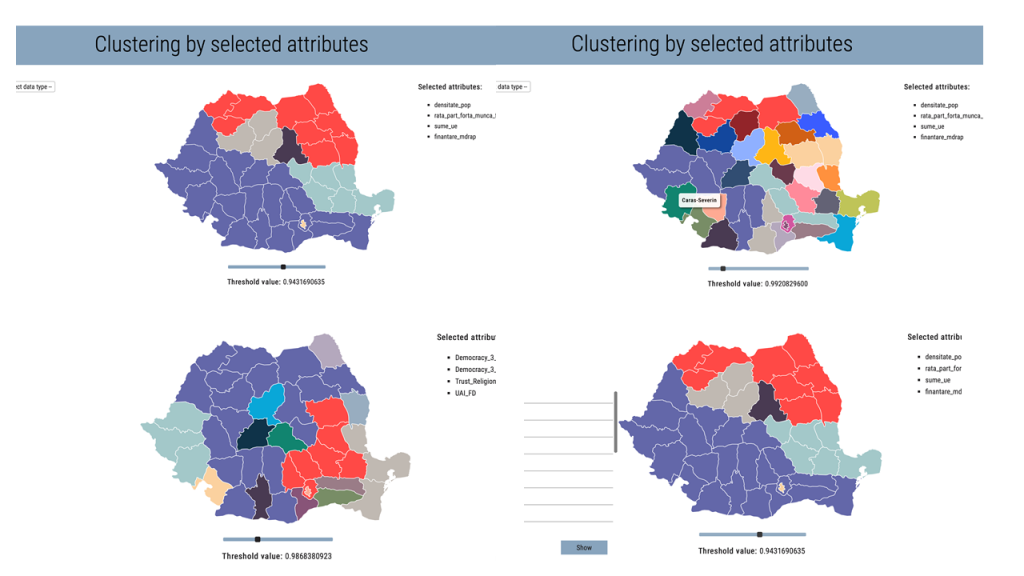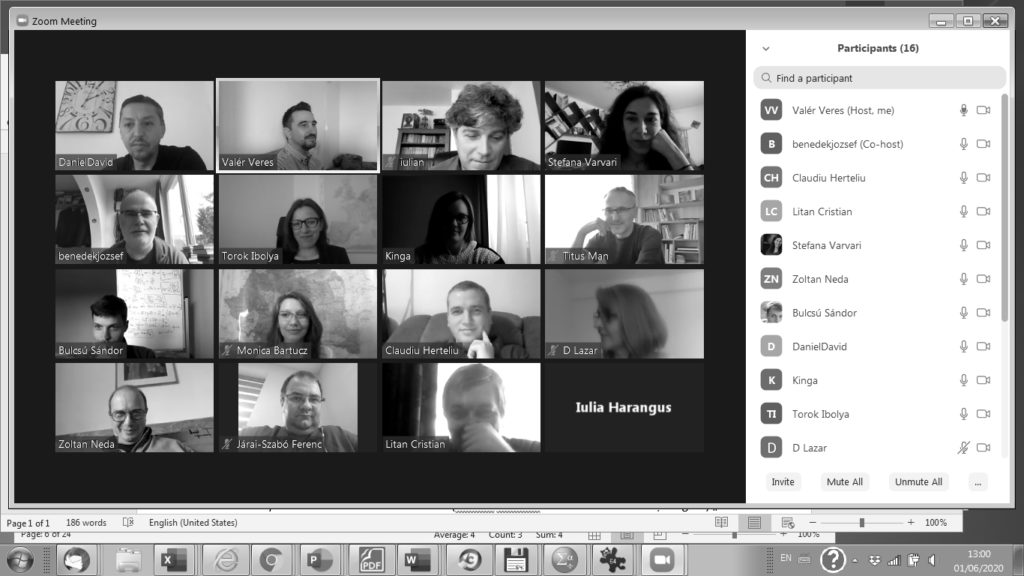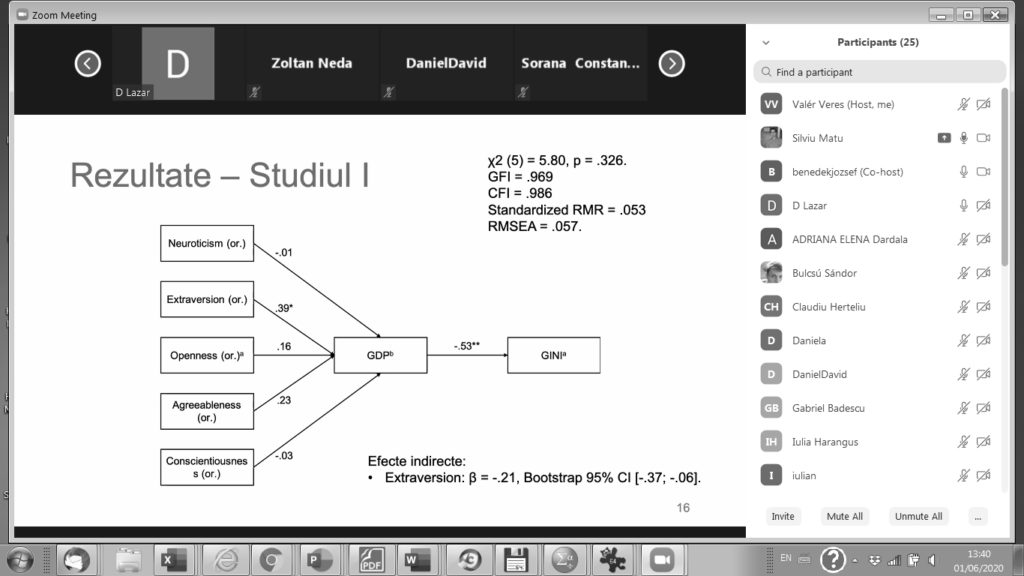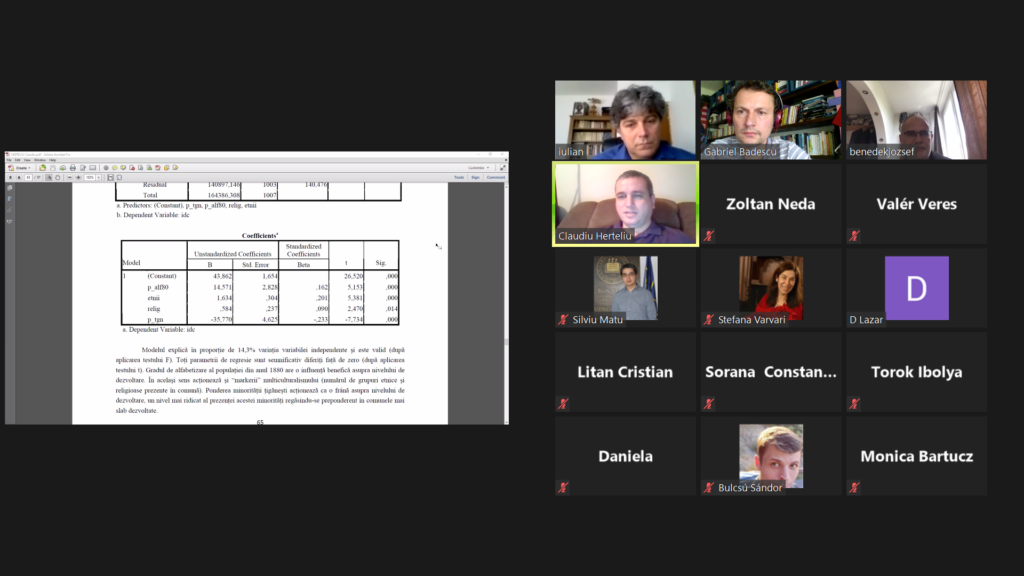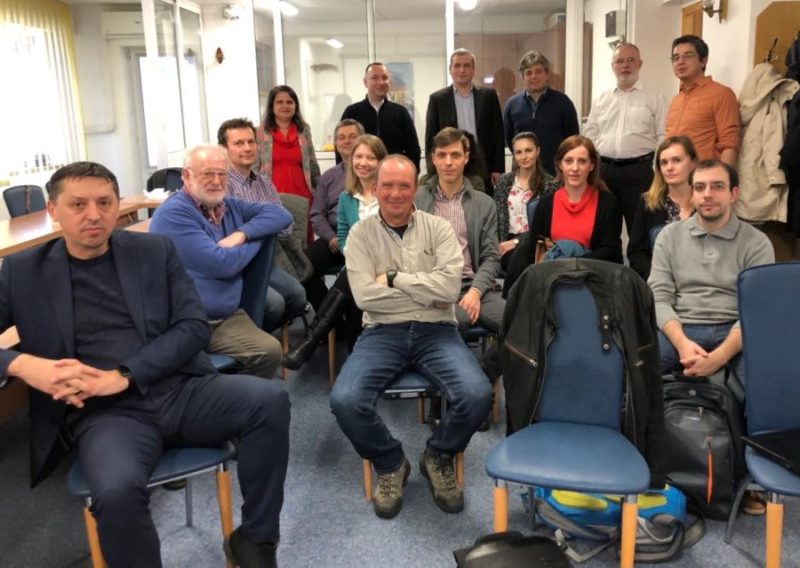Our funded project has reached its end, but the partners and teams are committed to continuing their work on psychological, political, and economic inequalities and polarization. We provide below a summary of the work that has been conducted in the project. Interested readers can access the full report compiled at the end of the project HERE.
Taking into account the work of each individual partner and the joint activities, we consider that all objectives of the project were attained. The project generated a unique data set containing extensive data on psychological, attitudinal, economic, and developmental indicators, mapped on the administrative organization of the Romanian territory, which has been made publicly available on the project’s website. This data set has been the foundation for achieving the other objective of the projects but will also serve as a valuable resource for the partners and the general scientific community for future analyses on the evolution of PESH indicators across Romanian regions, for either research or policy recommendations.
The partners in the project have also generated an extensive set of maps comprising the distribution of psycho-social and socio-economic indicators across Romania. The maps have been organized both on the classical administrative and historical divisions of Romanian territory (NUTS I-III), but also based on clusterization techniques, allowing the regions to group together based on their similarities on the same indicators, or based on the convergence (correlation) of the indicators. The depth of the knowledge that has been gained about the geographical distribution of psychological, social, political, and economic indicators across Romania is comparable to the available knowledge for other developed countries were such analysis were performed in the last decade.
Perhaps the most extensive work performed by the partners is reflected in the various methods and the complexity of the analyses that were conducted to understand the relationships between psycho-social and PESH indicators, with special focus on inequalities and polarization indicators. The work conducted includes several invocations, including a aggregated regional-level analysis of the cognitive-behavior model derived from evidence-based clinical psychology, a new methodology for measuring the Sustainable Development Goals, which combines classical and progressive data sources (e.g., satellite images), a complex analysis on the impact of historical literacy and modern days development in the Romanian countries that were part of the Austro-Hungarian Empire prior to 1918, and a complex approach to modeling income inequalities using the Local Growth with Global Reset model (Biro-Neda model).
The project has facilitated the publication of a large numbers of scientific articles (58 indexed in Web of Sciences) and multiple other international and national publications in respected journals or published by reputed publishing houses. The partners also had an extensive outreach in the scientific community, with several participations at prestigious international conferences in each year of the project.
Based on the work that was conducted in the project, several public policy documents have been elaborated, covering topics such as the development of a modernity index for Romania, fake news and vaccination during the COVID-19 pandemic, post-secondary education, and the implication of international standardized tests for the Romanian educational system.


